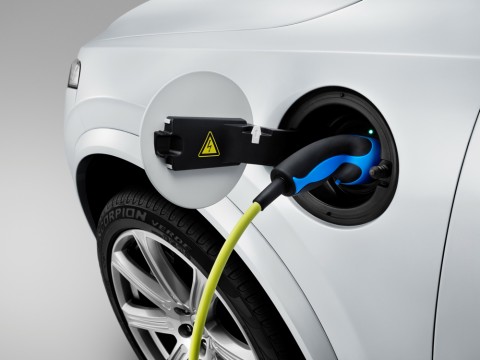Hybrid models are a very significant part of the lineup for both the luxury brand Lexus and its mainstream counterpart (and parent company) Toyota. Hybrids accounted for about 16 percent of the brands’ U.S. sales, while they encompass nearly 70 percent of the U.S. hybrid market and about 85 percent of the luxury hybrid market.
While Lexus has arguably dominated the market on luxury hybrids, they’ve offered no plug-in hybrids as of yet. Even over on the Toyota side there’s only been the Toyota Prius Hybrid, a model with an official electric-only range of just 11 miles and limited electric-only operation.
ALSO SEE: 2015 Tesla Model S 70D: First Drive Of New Electric Car Base Model
Recently as part of a wide-ranging interview at the New York Auto Show, we caught up with Mark Templin, executive vice president, Lexus International, and the managing officer for Toyota Motor Corporation, about why the brand hasn’t been bullish on plug-ins—either globally or here in the U.S.
Plug-in hybrids: gateway tech or ‘regulatory loophole?’
“There are too many hurdles, and we’re not sold yet on plug-in hybrids,” said Templin. “There’s a case to be made for them as a sales tool, but not as a way to save the environment.”

2016 Volvo XC90 T8 Twin Engine plug-in hybrid
The concern, as Templin argued, is that plug-in hybrids are essentially becoming more of a regulatory loophole than a means of greening the fleet on a broad scale.
“Unfortunately when you build a plug-in hybrid you add weight to the vehicle, and you make it less fuel-efficient,” explained Templin. “Unless you plug it in and then use the electricity, that itself may come from a coal-fire plant.”
Of course others would argue that plug-in hybrids are a great ‘gateway’ technology—to get consumers used to the idea of plugging in so that they might transition to a full electric vehicle next time. It’s also fair to point out that well-to-wheels, most grid power from coal is better in terms of carbon emissions.
“The reality is that in most places, people only buy plug-in hybrids for the tax benefit or carpool lane benefit—and then they never plug them in,” Templin continued. “So the government creates a regulation that’s supposed to create better emissions, less pollution, better MPG, and the reality is you add weight to the car and it gets poorer emissions.”
“You’re not really doing what the regulation was intended to do,” argued Templin. “Unless you force people to plug them in, you’re not getting the intended benefit.”
CHECK OUT: Honda Insight Hybrid: The Least-Wanted Car In America?
A fuel-cell model in Lexus’s future?
Templin wouldn’t say whether there’s a Lexus fuel-cell vehicle in the near future, but he pointed to the Mirai’s drivability and the success and progress in establishing a hydrogen infrastructure in Japan, the east and west coasts of the U.S., and in a few European markets. And he insists that fuel-cell technology has better chances in the future than pure battery electric vehicles.
While the executive says that Lexus would consider fuel cells to be the powertrain of choice, long-term, they have options.
“The nice thing for us is, because we’re a part of Toyota, we have hybrids, plug-in hybrids, electric cars, fuel cells, all that’s sitting there on the parts shelf, and if we see a need for those things, we can do it.”
Watch the video below to refresh on how Lexus still thinks plugging in "might hold you back." Then tell us, do you think Lexus is missing out in not pursuing plug-in hybrids? Are they just a regulatory loophole, or a meaningful interim technology? Let the comments commence.
_________________________________________













